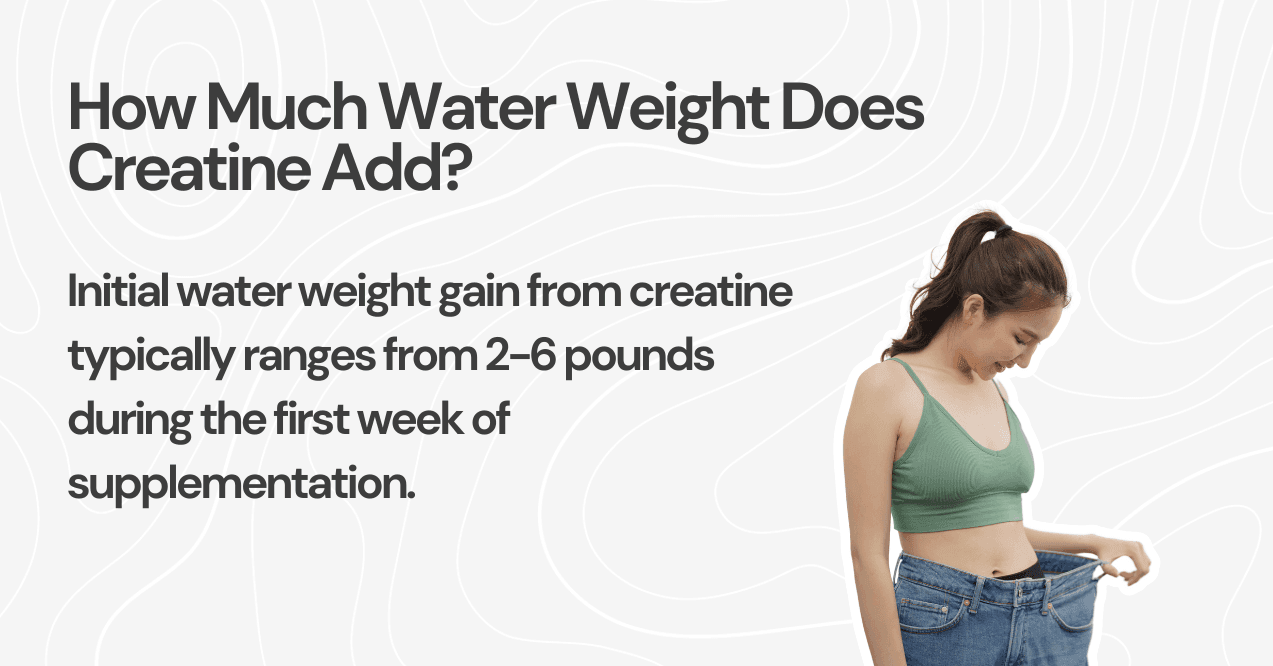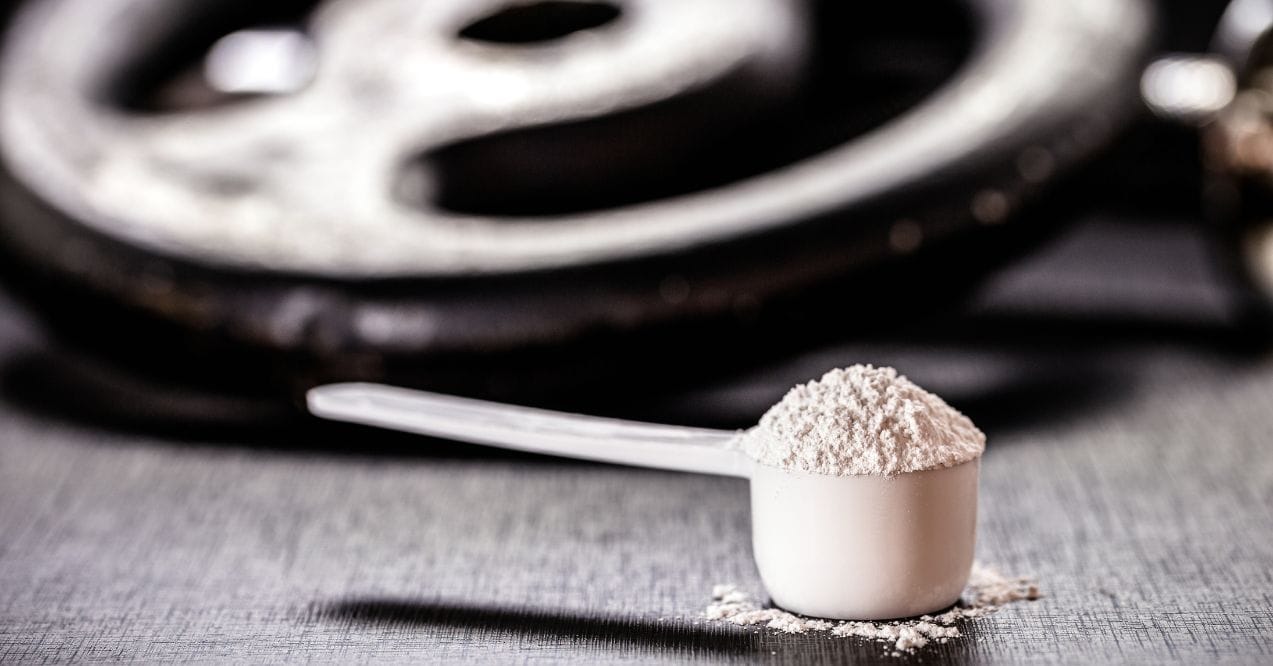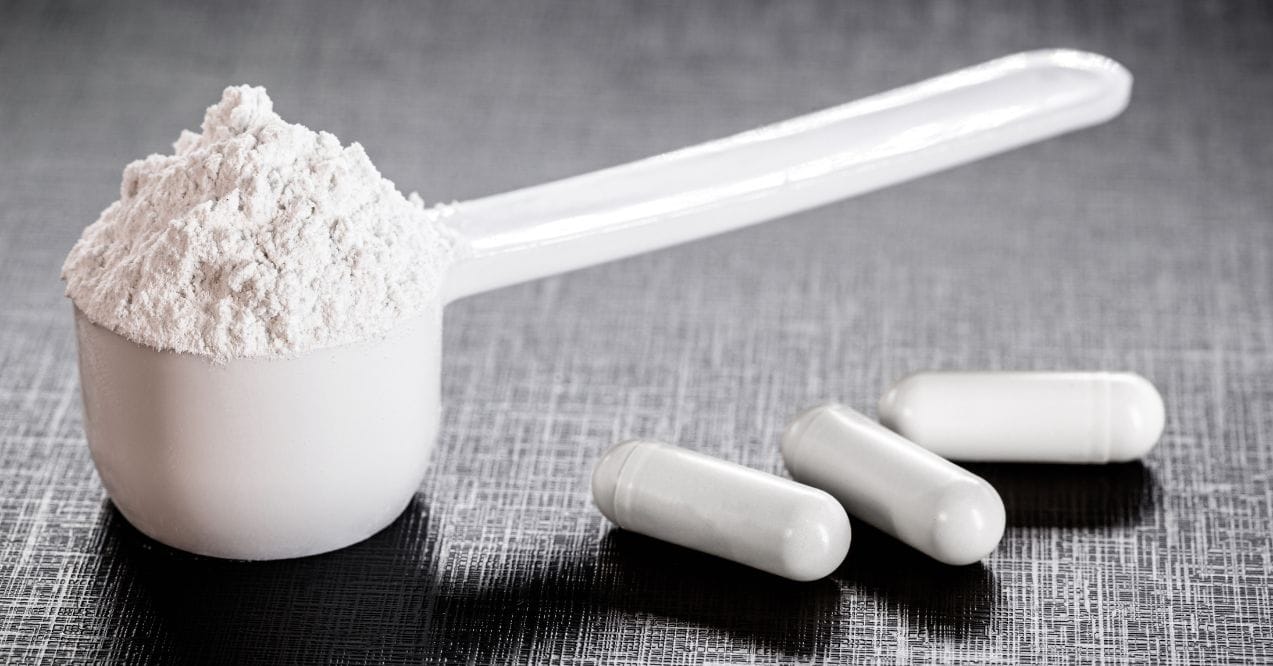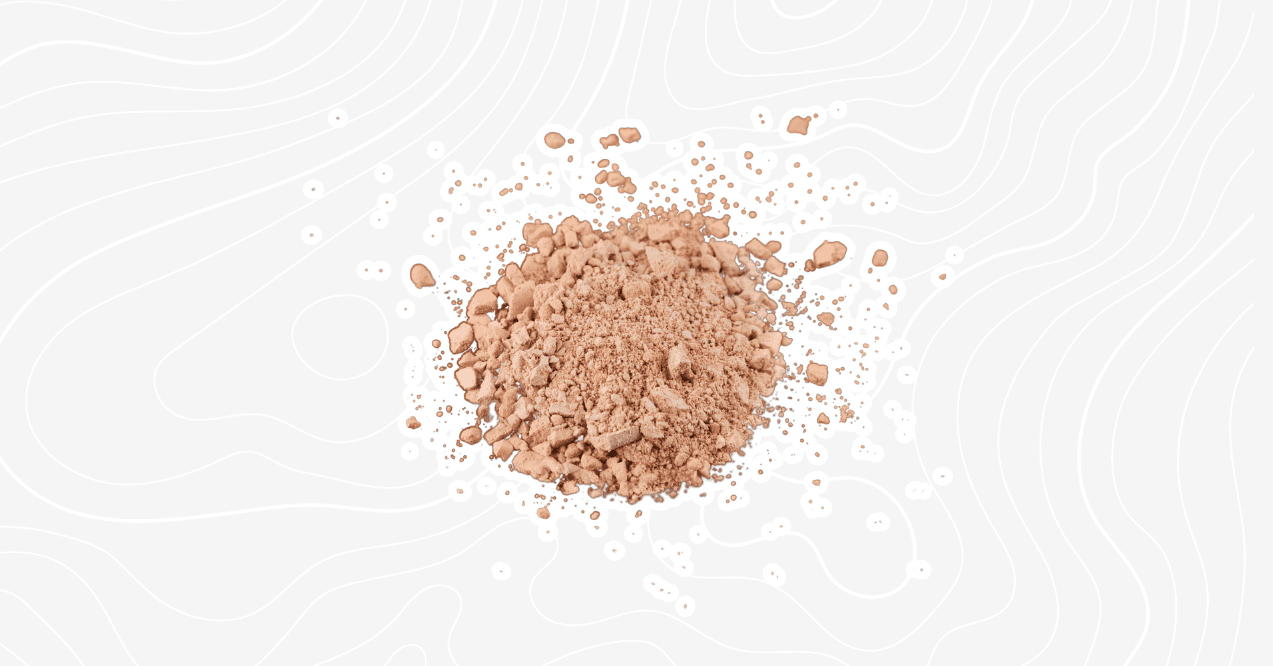Does Creatine Make You Gain Weight? Here’s What You Should Know
Does creatine make you gain weight? If you’re exploring this popular supplement, this question has likely crossed your mind. Creatine has earned its spot as the most researched and widely used supplement in the fitness world.
Your muscles store this naturally occurring compound, which helps power your workouts and build strength. Yet many people worry about potential weight changes when starting creatine supplementation.
And timing brings up even more questions – like Can I Take Creatine Before Bed?. As more people look to fit creatine into their routine, understanding how and when to take it (without affecting sleep or digestion) becomes just as important as tracking its impact on body weight.
Wondering, does creatine expire? Yes – and understanding both its shelf life and effects on body weight is crucial for anyone considering this supplement. So, whether you’re chasing better gym performance or simply curious about creatine’s effects, we’ll break down exactly what happens to your weight when you start taking it.

Does Creatine Make You Gain Weight?
So, does creatine make you gain weight? The short answer is yes – creatine weight gain is real, but it’s probably not the type of weight gain you’re worried about. When you start taking creatine, you’ll likely see the scale tick up within the first week.
This initial change often causes concern, but here’s the good news: you’re not gaining fat. Instead, this weight comes from two main sources: water retention and potential muscle growth. Most people gain between 2-6 pounds in their first few weeks of supplementation.
Water Weight
When you start taking creatine, your muscles begin storing more water – a process called cell volumization. This may leave you wonder, does creatine make you bloated? Although you might notice some initial puffiness, this is a natural and temporary response to the supplement, not a sign of anything concerning.
The water weight gain typically occurs within the first week of supplementation. Your muscles pull in extra water to help store the creatine, which can add 2-4 pounds to your weight naturally. This process happens because creatine attracts water into your muscle cells, increasing their volume and size. Think of it like a sponge absorbing water – your muscles are simply holding onto more fluid than usual.
Another common question is whether taking creatine on an empty stomach impacts absorption. Some believe creatine is absorbed faster without food, while others prefer taking it with a meal to improve digestion and reduce potential stomach discomfort. The best approach often depends on individual preference and how your body reacts to supplementation. Creatine on an Empty Stomach is something many athletes experiment with to optimize performance.
Muscle Mass
Beyond water retention, creatine can support genuine muscle growth when combined with regular strength training. This supplement works by increasing your body’s phosphocreatine stores, which helps produce more ATP (energy) during high-intensity exercises. This extra energy allows you to:
- Complete more reps during your sets
- Lift heavier weights
- Recover faster between sets
- Maintain higher training intensity
As a result, you can perform better during your workouts, leading to increased muscle growth over time. This type of weight gain is different from water weight because it represents actual improvements in lean muscle mass. Research suggests that people taking creatine while following a structured resistance training program can gain 2-4 pounds of muscle mass over 4-8 weeks, beyond what they might achieve with training alone.
Why Does Creatine Cause Water Retention?
Creatine causes water retention through a natural process called osmosis. When you take creatine supplements, the concentration of creatine in your muscle cells increases. To maintain balance, your body draws more water into these cells.
This happens because creatine is osmotically active, meaning it pulls water along with it as it enters your muscle cells. Each gram of stored creatine holds about 3-4 grams of water. As your muscles store more creatine through supplementation, they simultaneously retain more water.
This process also explains why staying well-hydrated is crucial when taking creatine. Your muscles need adequate water to properly store the creatine and support its energy-producing benefits during workouts.
How to Distinguish Water Weight From Muscle Gain?
Understanding whether your weight gain comes from water retention or muscle growth helps you track your progress more accurately. Here’s how to tell the difference:
Timing and patterns:
- Water weight appears within the first 5-7 days of starting creatine
- Muscle gains happen gradually over weeks or months
- Water weight can fluctuate daily
- Muscle gains show steady, slower progress
Physical signs:
- Water retention often causes temporary puffiness or fullness
- Muscle gains lead to improved definition and strength
- Water weight affects your entire body
- Muscle growth shows in specific trained areas
Performance indicators:
- Water weight doesn’t improve your strength
- Muscle gains come with noticeable strength increases
- Your lifting numbers stay similar with water weight
- Real muscle growth leads to progressive overload
The key difference? Water weight comes on quickly and can fluctuate, while muscle gains develop slowly alongside improved strength and performance.
How Much Water Weight Does Creatine Add?

Initial water weight gain from creatine typically ranges from 2-6 pounds during the first week of supplementation. However, your individual response can vary significantly based on several key factors.
Body size and muscle mass play a major role:
- Larger individuals with more muscle mass often retain more water
- Smaller individuals typically experience less water retention
- Athletes might notice higher numbers due to their larger muscle volume
- Regular gym-goers may see moderate increases
Supplementation approach also affects water retention:
- Loading phase (20g daily) can lead to faster water weight gain
- Maintenance dose (5g daily) causes more gradual changes
- Consistent supplementation maintains steady water levels
- Taking creatine with adequate water supports proper absorption
Keep in mind that this initial water weight stabilizes once your muscles are saturated with creatine. After the first few weeks, your weight should level off unless you’re actively building new muscle through training.
Looking for a premium creatine supplement? Trumeta Creatine, made with 100% Creapure®, delivers pure, high-quality creatine for optimal results. Our ultra-pure formula contains zero contaminants, helping you maintain steady energy levels while supporting both your physical and mental performance goals. Whether you’re focused on building strength or enhancing endurance, Trumeta Creatine provides the quality you need for your fitness journey.
What to Do if You Gain Weight After Taking Creatine?
Remember that weight gain from creatine is expected and usually beneficial for your training goals. However, if you’re concerned about the changes, here’s what you can do:
Stay hydrated:
- Drink plenty of water throughout the day
- Proper hydration helps prevent creatine headache and discomfort
- Aim for clear or light-yellow urine as a hydration indicator
- Space your water intake evenly throughout the day
Adjust your approach:
- Skip the loading phase and start with 5g daily
- Take measurements beyond just weight (like progress photos)
- Track your strength gains to focus on performance
- Consider timing your creatine intake post-workout
Monitor your progress:
- Keep a log of your weight changes
- Track your exercise performance
- Take body measurements every 2-3 weeks
- Note any changes in how your clothes fit
Remember, initial weight gain is temporary and doesn’t affect your body composition negatively. If you’re still concerned after a few weeks, try reducing your dosage to 3g daily while maintaining your training routine.
The key is patience – give your body time to adjust to the supplement while focusing on your training progress rather than the number on the scale.

Conclusion
Does creatine make you gain weight? Yes, but this weight gain is both normal and beneficial for your fitness goals. Understanding that initial water weight gain is temporary, while long-term muscle gains come from consistent training and supplementation, helps you make informed decisions about your creatine use.
Don’t let concerns about weight gain stop you from trying this effective supplement. Focus on your performance improvements, stay hydrated, and give your body time to adjust. When used properly, creatine’s benefits for your strength and muscle growth far outweigh any temporary changes on the scale.
Initial water weight gain typically ranges from 2-6 pounds in the first week of supplementation. Long-term muscle gains vary based on your training routine, but most people can expect 2-4 pounds of lean muscle over 4-8 weeks of consistent use.
Pure creatine monohydrate contains zero calories. It’s a non-protein amino acid compound that doesn’t impact your daily caloric intake, making it suitable for any diet plan, including calorie-restricted programs.
Creatine doesn’t directly support weight loss. However, it can enhance workout performance and help maintain muscle mass during a calorie deficit, which may support your overall weight loss goals through improved training quality.
Advertisement. This site offers health, wellness, fitness and nutritional information and is designed for educational purposes only. You should not rely on this information as a substitute for, nor does it replace, professional medical advice, diagnosis, or treatment. If you have any concerns or questions about your health, you should always consult with a physician or other health-care professional. Do not disregard, avoid or delay obtaining medical or health related advice from your health-care professional because of something you may have read on this site. The use of any information provided on this site is solely at your own risk.







